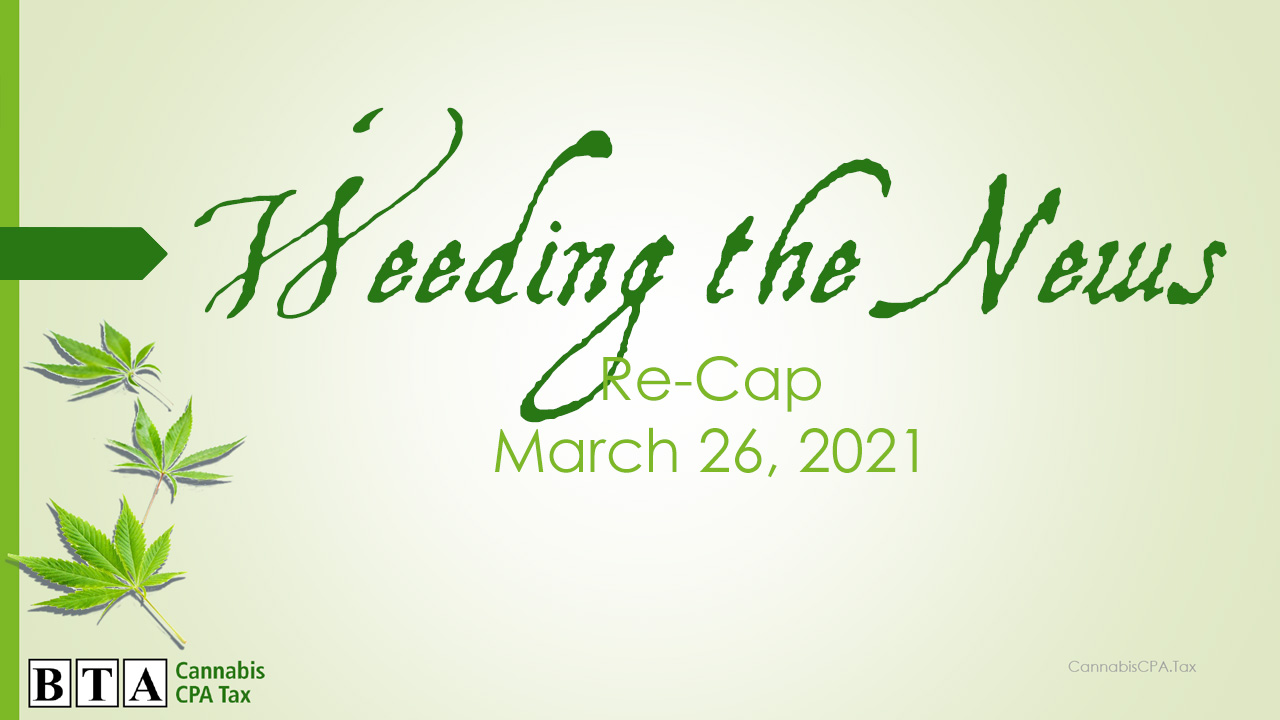The information contained in Weeding the News issues is provided for informational purposes only and should not be construed as tax or legal advice.
#1 – IRS Change in Filing Date is for Individual Taxes 2020 Tax Year Only
Tax filing dates for the 2020 tax year: what is changing and what is the same?
What has changed: the filing date for INDIVIDUAL income tax returns (Form 1040) is now May 17, 2021. Learn more about that change here.
What has not changed:
- The due date of March 15, 2021 for Partnerships and S-Corporations.
- The due dates for any C Corporation tax returns. The due date is the 15th day of the 4th month following the year-end. If the corporation has a calendar year-end, then the due date is April 15, 2021.
- Quarterly estimated taxes for individuals as well as business entities.
NOTE: Even though the 1040 does not have to be filed until May 17th, the first-quarter estimate is due April 15th, one month before the 1040 is due.
It is best to make some “guestimate” for a payment amount. It may be best to keep it on the lower side. Why? One month after that, May 17th, there may be taxes due, so it is always better to pay the taxes due on a tax return, as opposed to paying a big estimate amount. Then the second quarter estimate due by June 15th can be managed with better information.
California has conformed to this due date change.
#2 – Extensions
To extend or not to extend? That is a big question year after year.
The extension is an extension to FILE, not an extension to PAY taxes.
If the taxpayer goes on extension, it is very important to calculate any taxes that may be due upon filing. Money should be sent to the IRS to cover this amount, or at least as much as possible.
What would happen if no monies were paid at the time of filing for the extension? The tax return is filed within the typical extension timeframe of six months. If it has taxes due but no estimated taxes were paid when filing the extension, the IRS can disregard the extension and compute underpayment penalties for a late filing of the tax return and late payment of the taxes.
Let’s change the circumstances a bit. The taxpayer owes back taxes from prior years and goes on extension. Let’s attach dates… It is May 17, 2021, and the taxpayer wants to go on extension for the 2020 tax year. The taxpayer should have made estimates for the four quarters of 2020.
Additionally, the taxpayer is on extension but MUST make quarterly estimates for 2021. If the taxpayer is on a payment plan, that plan is ONLY for old tax years. The taxpayer MUST stay current with paying taxes.
#3 – CDTFA Quarter 4: 2020 Cannabis Tax Returns are due April 30, 2021
Due to the COVID-19 pandemic, all but the largest taxpayers were given a three-month extension to file their 4th Quarter 2020 tax returns with CDTFA. These returns are now due on April 30, 2021.
Revisions to 4th Quarter 2020 data are expected in mid-May after the 1st Quarter 2021 return filing due date of April 30. Additional information on the relief offered due to the COVID-19 pandemic can be found on the CDTFA website here: COVID-19 State of Emergency.



